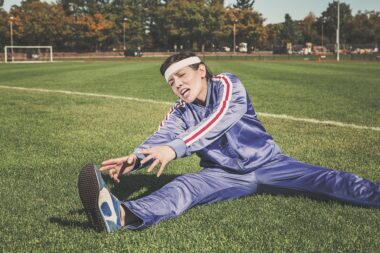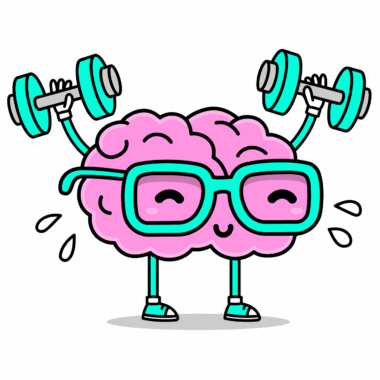Balancing Expectations: Realistic Motivation Strategies in Adaptive Fitness
Adaptive fitness focuses on enhancing physical abilities tailored to individual needs and capabilities. To achieve sustainable progress, motivational strategies become crucial, especially for persons with disabilities. Understanding personal limits is vital; this enables participants to set realistic goals rather than aiming for unattainable benchmarks. Setting achievable short-term objectives can build confidence while cultivating a positive mindset. Extensive self-reflection encourages people to recognize their achievements, no matter how small they may seem. Regular assessments help identify strengths and areas for improvement. Furthermore, engaging in collaborative settings provides opportunities for support and encouragement from peers, fostering an atmosphere of camaraderie. Utilize diverse adaptability techniques that suit individual preferences, as this can significantly boost motivation. Finding enjoyable activities encourages continued participation, which is essential for long-term success. Lastly, maintaining open communication with trainers or coaches ensures personalized adjustments that cater to changing abilities and desires. Equally important is reinforcing a positive outlook that focuses on effort and perseverance rather than solely on outcomes. Employing these strategies helps create a fulfilling adaptive fitness experience for individuals across varying abilities and disabilities.
Individual Goals and Celebrating Milestones
Establishing individual goals is vital in the journey of adaptive fitness. These goals should resonate with each person’s unique aspirations. By focusing on personal objectives, individuals can maintain motivation and drive, realizing their potential without shifting attention to others’ achievements. It’s essential to celebrate milestones along this journey. Recognizing progress, no matter how small, emphasizes the importance of continuous effort and growth. Celebrations can be formal or informal; perhaps a simple acknowledgment of achievements with peers or friends can enhance motivation. Joining adaptive fitness groups further provides valuable support networks that encourage accountability. An essential aspect of this process is figuring out what specifically triggers motivation for each participant. Tailored strategies centered around personal interests ensure that motivations are relevant, leading to a more satisfying experience. Engaging in activities that ignite passion encourages long-lasting dedication. For many, adaptability is key; therefore, regularly adapting goals can instill fresh inspiration that aligns with evolving abilities. By intertwining personal goals and celebrations, individuals can create a robust foundation for motivation, enabling them to thrive in adaptive fitness pursuits.
Remaining flexible is one of the vital frameworks in adaptive fitness motivation. As individuals grow and develop, their interests and capabilities may change. This fluidity necessitates frequent evaluations of one’s goals and strategies. Embracing flexibility empowers individuals to adjust their approaches without feeling disheartened. Training methods should remain adaptable, allowing for variations in exercise routines that cater to current preferences and energy levels. This prevents monotony, ensuring engagement in activities over time. Regularly trying new exercises or sports introduces a refreshing challenge and reignites enthusiasm in fitness pursuits. Also, including variety in workouts stimulates different muscle groups, promoting overall physical betterment. Moreover, individuals should embrace setbacks as part of their journey. These experiences are integral to growth, teaching resilience and perseverance. Encouragement to embrace failures as lessons helps cultivate a positive mindset. On top of this, community involvement can provide another layer of flexibility. Group activities create a supportive culture where adaptability is normalized and often celebrated. Shared experiences foster camaraderie, enhancing motivation through peer support, which allows individuals to thrive while continuously adapting their fitness strategies.
Accountability and Peer Support
Accountability is another key aspect of motivation in adaptive fitness contexts. When individuals rely on one another, they are more likely to follow through with their commitments and goals. Establishing a support network creates a sense of responsibility among peers, encouraging individuals to show up and stay engaged. Acknowledging peers’ efforts reinforces the understanding that they are not alone in their journey. This collective approach cultivates lifelong relationships that extend beyond fitness. Additionally, regularly scheduled workouts with a friend or volunteer can create accountability, where mutual encouragement translates into stronger motivation. Engaging in group training can also facilitate healthy competition, pushing participants to achieve their best while still maintaining a supportive atmosphere. Presence in social settings can lead to effective camaraderie, fostering deeper connections with fellow adaptive fitness enthusiasts. Online platforms enable individuals to share their experiences and successes with a wider audience. This awareness broadens their support system further, creating opportunities to inspire and motivate others. Through encouragement, accountability, and shared experiences, individuals can sustain motivation levels while enhancing their adaptive fitness journeys.
Utilizing technology offers modern solutions to enhance motivation strategies in adaptive fitness. Numerous applications are tailored to outline fitness routines, track progress, and promote healthier behaviors. These tools not only facilitate accountability but also allow individuals to engage in challenges, whether solo or with others. Access to data on improvement creates insights into personal progress, leading to reinforced motivation over time. Further, wearable devices provide real-time feedback while participants exercise. This feedback creates a more immersive experience, as real-time metrics engage users’ interest actively. From tracking heart rate to monitoring steps, technology creates a sense of accomplishment with each data point. Shareable results inspire friendly competition and camaraderie among peers. Online fitness communities allow individuals to connect, share experiences, and offer tips for success, contributing to motivation boosts. Additionally, many platforms offer virtual coaching or support, bringing expertise directly to individuals regardless of location. This accessibility fosters an inclusive atmosphere in which everyone can join. Embracing technology ensures adaptive fitness experiences remain engaging and relevant, providing diverse ways to enhance motivation and personal growth.
Consistency and Patience
Adopting a mindset of patience is crucial for sustaining motivation in adaptive fitness. Progress may not always be immediate or linear; understanding this is essential to maintaining motivation. Cultivating a consistent routine reinforces advancements and encourages individuals to keep pushing through challenges. A steadfast commitment to practice leads to gradual improvements that may become visible over time, but they require perseverance. Regularity in workouts shapes a stable foundation for growth, which leads to both short-term and long-term success. By developing a routine, individuals provide structure in their lives, making it easier to prioritize their fitness journeys among other responsibilities. Craving results too quickly can lead to frustration, which may derail one’s motivation. Therefore, acknowledging and appreciating incremental progress is important. Focusing on the journey rather than the finish line cultivates a richer experience. Participants should celebrate their efforts regardless of how small they might perceive them. Engaging in group discussions about experiences fosters positive reinforcement, reminding everyone that they share similar feelings and setbacks. This shared understanding facilitates mutual motivation and encourages patience throughout the process.
Creating an inclusive atmosphere plays a key role in adaptive fitness. Having spaces where everyone feels welcome, regardless of ability, builds strong foundations for motivation. Ambiance not only impacts participation but also influences the psychological factors that contribute to the motivation of participants with disabilities. Ensuring accessible equipment and facilities empowers individuals to engage in adaptive fitness without feeling marginalized. Inclusive practices foster a growth mindset that reframes challenges as opportunities for development. These environments promote interactions among individuals of varying abilities, allowing for shared learning experiences. By showcasing diverse role models within adaptive fitness, individuals can envision their potential in achieving personal goals. Inclusive events can highlight each participant’s unique contribution, enhancing team spirit and shared motivation. Mentoring programs can develop partnerships across abilities, providing invaluable support that extends beyond fitness. Offering diverse programs that cater to different interests encourages widespread participation, ensuring that every individual can engage meaningfully. Ultimately, nurturing inclusivity cultivates motivation, as participants rally around the understanding that everyone is entitled to personal growth and empowerment through adaptive fitness.





